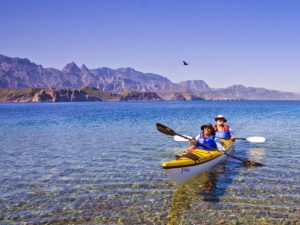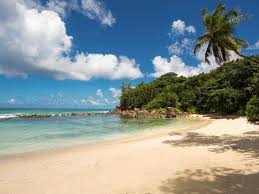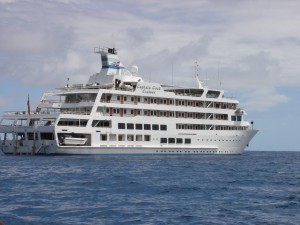Need a knee replacement? The medical tourist may combine surgery with a visit to the Taj Mahal.
Yes, we were once the hip generation — and we’re still pretty hip, if you ask me — but now many of us baby boomers are in the market for hip replacements. Not to mention knee replacements, heart bypasses, various forms of cosmetic surgery, and a host of other major medical procedures.
Alas, it goes with the territory of getting a little older, a little wizened, but…still wanting to remain as active and vibrant as possible for as long as possible.
And that’s where medical tourism comes in. In yesterday’s post I talked about the growth of medical tourism — traveling to other countries to have surgeries and other medical procedures done at a small fraction of what they would cost in the United States. And, as a byproduct of that less… Continue reading
With the U.S. health care system all too much in the news right now, it’s a good time to raise the issue of medical tourism: Americans — especially baby boomers — traveling to other countries to have surgeries and other medical procedures that cost a small fraction of what they do in the U.S.
And health permitting, many of these baby boomer medical tourists are taking the opportunity to see the sights of other countries as long as they’re traveling there anyway.
The most popular countries for medical tourism include Singapore, Thailand, India, Mexico, Costa Rica, Jordan, Turkey and Brazil.
That’s a pretty good bucket list of foreign destinations right there.
Need a knee transplant? See the unforgettable Taj Mahal in India and get a two-fer.
A heart bypass? You could leave your… Continue reading

Learn sea kayaking with Sea Kayaking Adventures
I was a little taken aback when I received a press release from a company called Sea Kayak Adventures titled “Baja, Mexico Gray Whales For the Gray-Haired,” promoting a whale-watching base camp trip in Baja intended for travelers aged 50-plus.
While I myself would more qualify for the “Baja Hairless Whales for the Hair-Impaired” trip — having turned gray (prematurely, of course) some years ago, and then deciding to go more for the mostly shaved-head look — I wondered whether 50-plus folks who retained dark hair (natural or otherwise) might feel offended or even forego the trip for that reason.
(Hey, stranger things have happened when it comes to deciding how to spend vacation dollars.)
So while I don’t recommend that promotional approach, exactly — is the play on “gray” really worth possibly costing business? — I have to say the trip… Continue reading
To supplement my previous post on the closing of U.S. national parks today, I’m reprinting an official advisory on the topic from the National Park Service. Read it and weep, if you love our national parks:
This park closed until further notice…
Government shutdown forces closures of 401 national parks
WASHINGTON – Because of the shutdown of the federal government caused by the lapse in appropriations, the National Park Service has closed all 401 national parks and suspended operation of dozens of community assistance programs.
All park grounds, visitor centers, hotels, campgrounds, and park roads – except for thru ways – are closed. All programs are canceled and permits issued for special events on park grounds nationwide are rescinded.
Park visitors in all overnight campgrounds and lodges have been given until no later than 6:00 p.m. Eastern Daylight Time on Thursday, October 3 to make other… Continue reading
A view of Acadia National Park — before the shutdown.
I was lucky enough to be in Acadia National Park along the stunning Maine coastline a few days ago, which is luckier than anyone who tried to enter the park today (October 1 as I write this).
Because of the federal government shutdown, Acadia — along with all other national parks and monuments — are closed today, and will be until Congress agrees to fund the government again.
The day I was there was a perfect fall day in Acadia: blue skies, blue sea, rugged rock formations, hiking trails snaking up hillsides and down to beaches, popovers baking at Jordan’s Pond House.
The rounded top of 1,500-foot-high Cadillac Mountain — offering panoramas looking out over Penobscot Bay, Bar Harbor and the heavily forested Maine countryside — was teeming with visitors enjoying the views, snapping pictures, and clambering over the rocks.… Continue reading
New York State Attorney General Eric Schneiderman: phony reviews will cost you.
In a previous post I discussed some of the good and bad aspects of TripAdvisor reviews, including possibly phony reviews that overexaggerate the positives or negatives of hotels, restaurants, and various travel activities, often to the point of ridiculousness.
Now New York State Attorney General Eric Schneiderman is cracking down on some businesses that have been giving themselves five-star reviews on sites like Yelp, Google, CitySearch and Yahoo.
Nineteen companies — including a charter bus company as well as non-travel-related businesses — have been ordered to stop writing or contracting for phony reviews of themselves and to pay a total of $350,000 in fines.
Schneiderman estimates that by next year one seventh of all the reviews on social media sites will be fakes.
So-called “reputation enhancement” companies are at the heart of the problem, hiring cheap foreign labor… Continue reading
Recently I talked about the new breed of luxury hostels that are popping up around Europe and appealing not only to younger travelers — as hostels traditionally have — but to baby boomer travelers as well.
Now the excellent travel site skift.com has a piece interviewing Josh Wyatt, director of hospitality and leisure at the company that owns Generator Hostels, the leading brand of luxury hostels with eight locations and more on the way. It’s definitely worth a follow-up to hear what he has to say.
For starters, as the skift.com piece points out, Generator is “aggressively targeting” higher-income older travelers by offering a number of guest rooms for singles and couples that include private bath.
For instance, the 154-room Generator Barcelona, which opened this past spring, has devoted more than a fifth of its rooms to singles… Continue reading

The exotic Seychelles of the Indian Ocean. Photo from Seychelles.org
I’m going to hazard a guess that most readers will not know where the Vanilla Islands are or what they are. At least not under that name.
The “Vanilla Islands” is actually a brand name used for marketing tourism to the seven Indian Ocean island countries of the Seychelles, Madagascar, Mauritius, Maldives, Mayotte, Reunion, and the Comoros. Most baby boomers will certainly be familiar with the Seychelles, Madagascar, Maldives, and Mauritius, though they may know less about Mayotte, Reunion and the Comoros.
I think it’s a wonderful idea for island countries spread widely across the Indian Ocean to join together for marketing purposes. (The brand name was established in 2010 and the grouping has since grown from four to seven.)
One of their goals is to reduce paperwork and join together in other ways to make it easier to visit… Continue reading
Happy World Tourism Week, everyone.
This is the annual week (September 21-28 in 2013) when the United Nations World Tourism Organization — which supports sustainable tourism around the globe — celebrates global tourism and tries to keep it on an environmentally friendly path.
This year’s theme is “Tourism and Water: Protecting Our Common Future” — a vital topic because if we don’t protect the earth’s oceans, rivers, lakes and wetlands, we’re all in deep trouble, not just the tourism industry.
But the name “World Tourism Week” got me to thinking about a debate that’s been brewing among travel bloggers and websites recently on the connotations of the word “tourist” and whether or not “tourists” are lesser forms of life compared to “travelers.”
The thinking goes like this: “Tourist” implies someone who takes group tours, maybe… Continue reading

Jacada Travel will help you get close up to a zebra on a luxury African safari.
I wasn’t too familiar with Jacada Travel, a London, England-based company that specializes in luxury private guided tours in Latin America and Africa, but a new Gold Award from Travel Weekly in their 2013 Magellan Awards made me take notice.
Jacada Travel was named a “Best Overall” tour operator by a panel of travel industry leaders and insiders.
The company is just five years old and promises to deliver personalized travel experiences, which they’ll design for you based on your wants, needs, desires, and, no doubt, a few whims.
If cost is no object — or at least not the defining object — in your pursuit of bucket list safaris in Africa or Amazon tribal encounters in Peru, Jacada Travel will make it happen.
Baby boomers (as well as other travelers such as… Continue reading














